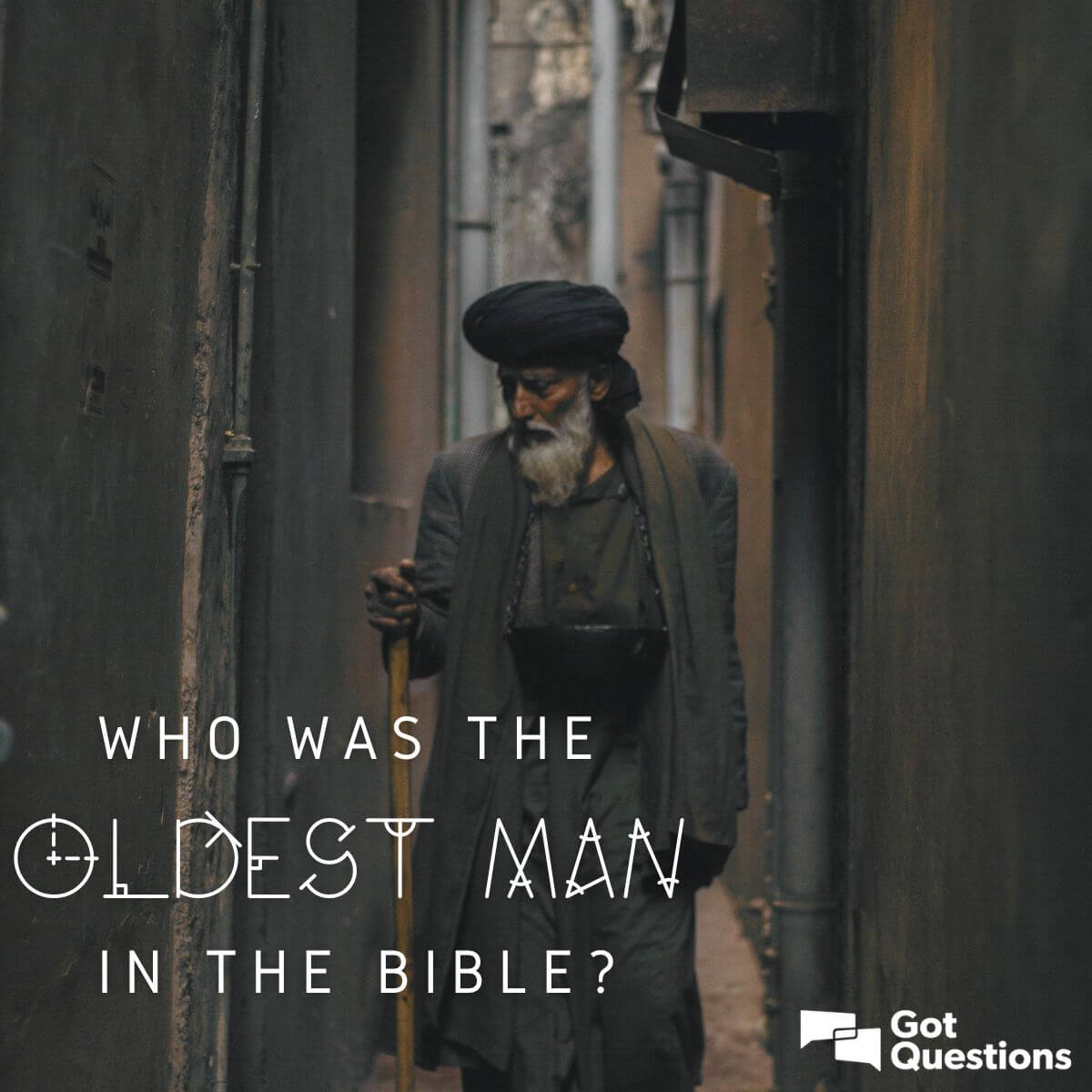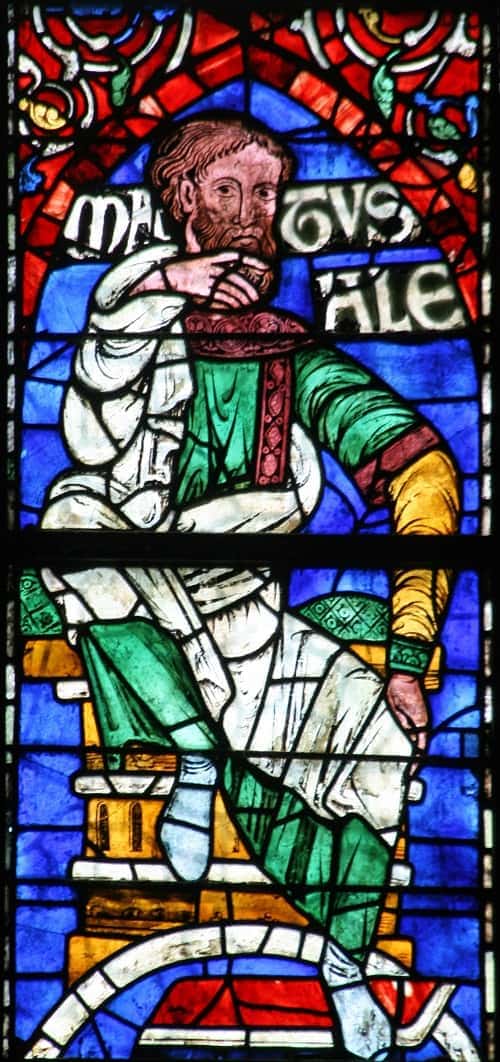Who Is The Oldest Man In The Bible? Discover The Fascinating Story Of Methuselah
Apr 21 2025
Ever wondered who holds the crown for being the oldest man in the Bible? Yeah, we’re diving deep into the story of Methuselah, a name that’s practically synonymous with longevity. From ancient scriptures to modern-day references, his tale has captivated generations. So, buckle up as we uncover the secrets behind the man who lived for a whopping 969 years! Let’s roll.
When you think about living a long life, Methuselah is the first name that pops up in most Bible trivia. His story isn’t just about numbers; it’s a tale of faith, prophecy, and the mysterious ways of the divine. But how much do we really know about this legendary figure? Is there more to his life than just his age? Stick around, because we’re about to spill all the tea.
Now, before we dive into the nitty-gritty details, let’s set the scene. The Bible is packed with stories of extraordinary individuals, and Methuselah stands out—not just because of his age but also because of his connection to some of the most pivotal events in biblical history. Ready to explore the life and times of the oldest man in the Bible? Let’s get started!
Read also:Unveiling The Legacy Of 15801610157516061594 15861610 160615751606 A Comprehensive Guide
Who Was Methuselah? A Brief Biographical Overview
Methuselah wasn’t just some random dude who lived a long time. He was a key player in the lineage of Noah, and his life had major significance in the grand scheme of things. Let’s break it down:
Methuselah was the son of Enoch, a man known for walking faithfully with God and disappearing from the Earth without dying. Methuselah himself became the father of Lamech, who went on to father Noah—the guy who built the ark. So, yeah, Methuselah’s family tree is kinda a big deal.
Now, here’s where it gets interesting. Methuselah’s name is often interpreted as “when he dies, it shall be sent,” which many scholars believe refers to the Great Flood. Coincidentally (or maybe not), Methuselah passed away the same year the flood occurred. Spooky, right?
Key Facts About Methuselah
- Age: 969 years
- Parents: Enoch
- Children: Lamech
- Significance: Prophetic figure linked to the Great Flood
Check out this quick table summarizing Methuselah’s vital stats:
| Name | Age | Parents | Children |
|---|---|---|---|
| Methuselah | 969 years | Enoch | Lamech |
How Did Methuselah Live So Long?
This is the million-dollar question, isn’t it? How did Methuselah manage to stick around for almost a millennium? Well, scholars and theologians have been debating this for centuries, but here are a few theories:
First off, back in the early days of creation, humans were designed to live much longer lives. The Bible records several individuals who lived for hundreds of years, so Methuselah wasn’t exactly an outlier. Some theories suggest that the pre-Flood world had a different environment, possibly with a denser atmosphere or fewer harmful elements, which contributed to longer lifespans.
Read also:Understanding Balolasyndrome Symptoms Causes And Treatment Options
Another idea is that Methuselah’s longevity was a divine gift. After all, his father, Enoch, walked closely with God, and Methuselah himself lived during a time when humanity was still relatively close to the Creator. It’s possible that God granted him a long life to serve as a living testament to His power and faithfulness.
Environmental Factors: Could the Pre-Flood World Be the Key?
Let’s talk about the world before the flood. Scientists and historians have speculated that the Earth’s atmosphere might have been different back then. Some even suggest the presence of a “water canopy” that shielded the planet from harmful UV rays, promoting healthier living conditions. While this theory is still debated, it adds an interesting layer to the discussion about Methuselah’s long life.
The Significance of Methuselah in Biblical History
Methuselah wasn’t just a guy who lived a long time; his life had profound implications for biblical history. As we mentioned earlier, his name is often linked to the prophecy of the Great Flood. Many believe that his life served as a countdown to one of the most catastrophic events in human history.
Think about it: Methuselah lived for 969 years, and the flood occurred the same year he died. Was this a coincidence, or was it a divine plan? Many theologians argue that Methuselah’s life was a warning to humanity—a sign that judgment was coming.
Additionally, Methuselah’s lineage connects him to some of the most significant figures in the Bible. From his father, Enoch, who walked with God, to his grandson Noah, who saved humanity from destruction, Methuselah’s family tree is a who’s who of biblical history.
Lessons from Methuselah’s Life
- Longevity Doesn’t Equal Fulfillment: Methuselah lived a long life, but what did he do with it? His story reminds us that longevity isn’t everything; it’s how we use our time that matters.
- God’s Timing is Perfect: Methuselah’s life and death align perfectly with the timing of the Great Flood, reinforcing the idea that God’s plans are always on point.
- Legacy Matters: Methuselah’s legacy lives on through his descendants, particularly Noah, who played a pivotal role in humanity’s survival.
Other Long-Lived Figures in the Bible
Methuselah wasn’t the only guy in the Bible who lived a long time. Let’s take a quick look at some other notable figures:
- Adam: 930 years
- Enoch: 365 years (though he didn’t die)
- Noah: 950 years
- Jared: 962 years
These guys weren’t just hanging around for the heck of it. Their long lives served a purpose, whether it was spreading God’s message, raising faithful children, or serving as a reminder of His power and grace.
Why Did Longevity Decrease After the Flood?
After the flood, lifespans began to decrease significantly. By the time of Abraham, people were living for around 175 years, and by the time of Moses, the average lifespan had dropped to around 120 years. Why the sudden change? Scholars suggest that the post-flood environment might have been harsher, with fewer resources and more diseases. Additionally, God might have shortened human lifespans to limit the amount of evil that could accumulate over time.
Modern-Day Relevance: What Can We Learn from Methuselah?
Okay, so Methuselah lived a long time. But what does that mean for us today? Here are a few takeaways:
First, Methuselah’s life reminds us of the importance of legacy. Whether you live for 969 years or just a fraction of that, the choices you make and the people you influence can have a lasting impact. Think about the kind of legacy you want to leave behind.
Second, Methuselah’s story teaches us about the importance of faith and trust in God. Even when life feels uncertain or the future seems bleak, we can find comfort in knowing that God’s plans are always perfect.
Finally, Methuselah’s life challenges us to make the most of the time we’ve been given. Whether it’s through serving others, pursuing our passions, or simply enjoying the moments we have, every day is a gift worth cherishing.
Practical Tips for Living a Fulfilling Life
- Focus on Relationships: Build strong connections with family, friends, and your community.
- Pursue Your Passions: Whether it’s a hobby, a career, or a cause, find something that lights your fire and go for it.
- Practice Gratitude: Take time each day to appreciate the good things in your life, no matter how small they may seem.
Scientific Perspectives on Longevity
While the Bible provides one perspective on Methuselah’s long life, science offers another. Researchers have been studying the genetics and environmental factors that contribute to longevity for years. Here’s what they’ve found:
Genetics play a big role in how long we live, but so do lifestyle choices. Eating a healthy diet, exercising regularly, and avoiding harmful habits like smoking can add years to your life. Additionally, staying mentally and socially active can help keep your brain sharp and your spirits high.
Some scientists even believe that advances in technology and medicine could one day allow humans to live much longer lives—perhaps even rivaling Methuselah’s 969 years. Who knows? Maybe the future holds some surprising twists when it comes to longevity.
Can We Live as Long as Methuselah?
While we’re not quite there yet, some researchers are optimistic about the possibility of extending human lifespans significantly. Advances in gene therapy, stem cell research, and regenerative medicine could one day make it possible for people to live much longer, healthier lives. But for now, Methuselah’s record stands unchallenged.
Conclusion: The Legacy of the Oldest Man in the Bible
So, there you have it—the story of Methuselah, the oldest man in the Bible. His life was more than just a number; it was a testament to faith, prophecy, and the power of legacy. Whether you’re a Bible scholar, a history buff, or just someone curious about the mysteries of life, Methuselah’s story has something to offer.
As we wrap up, let’s take a moment to reflect on what we’ve learned. Methuselah’s life reminds us of the importance of using our time wisely, trusting in God’s plans, and leaving a lasting impact on the world. So, what will your legacy be? The ball’s in your court.
Before you go, why not drop a comment or share this article with a friend? And if you’re hungry for more biblical insights, be sure to check out some of our other articles. Until next time, stay curious and keep exploring!
Table of Contents
- Who Was Methuselah? A Brief Biographical Overview
- How Did Methuselah Live So Long?
- The Significance of Methuselah in Biblical History
- Other Long-Lived Figures in the Bible
- Modern-Day Relevance: What Can We Learn from Methuselah?
- Scientific Perspectives on Longevity
- Conclusion: The Legacy of the Oldest Man in the Bible


